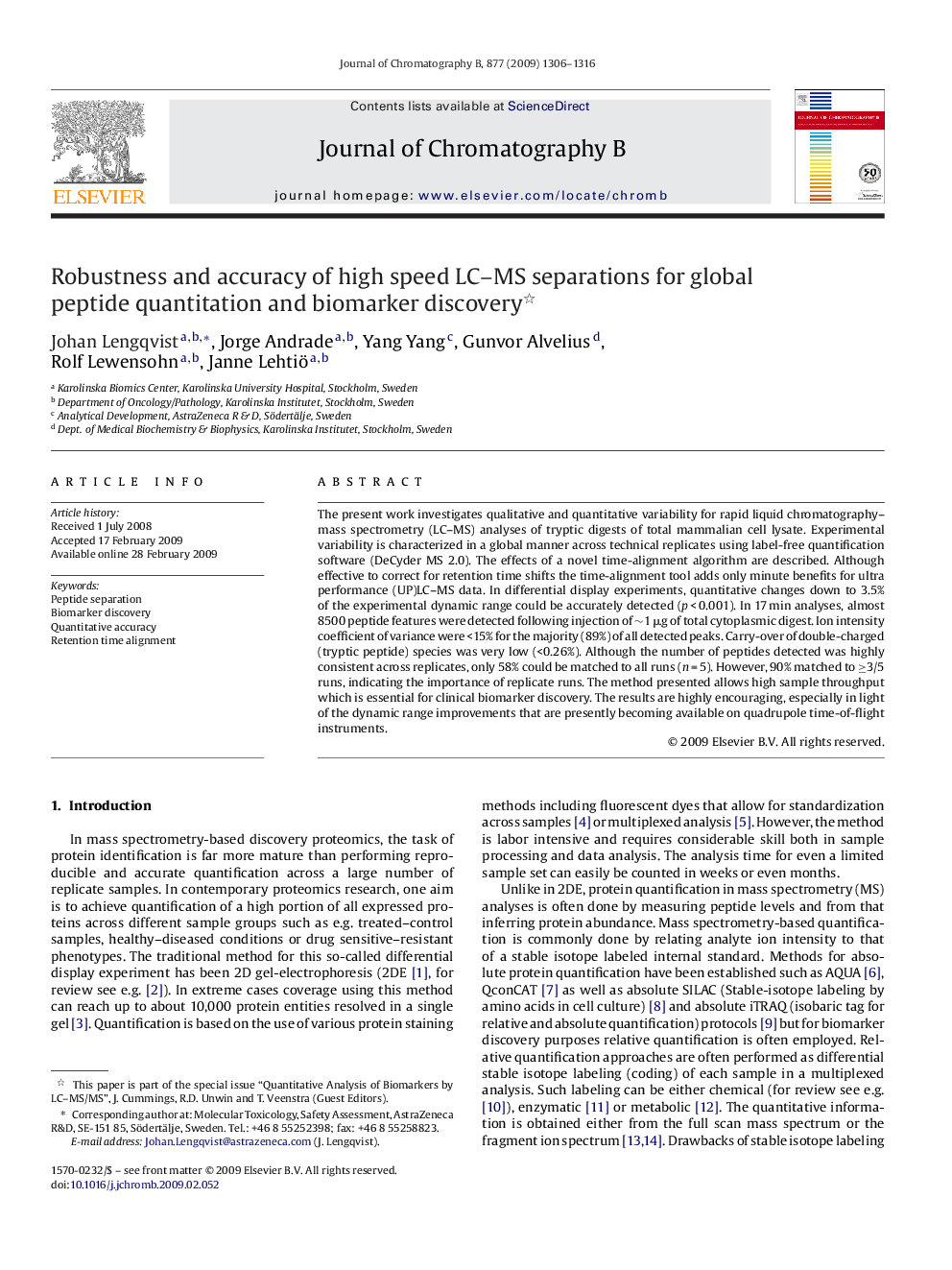| Article ID | Journal | Published Year | Pages | File Type |
|---|---|---|---|---|
| 1214764 | Journal of Chromatography B | 2009 | 11 Pages |
The present work investigates qualitative and quantitative variability for rapid liquid chromatography–mass spectrometry (LC–MS) analyses of tryptic digests of total mammalian cell lysate. Experimental variability is characterized in a global manner across technical replicates using label-free quantification software (DeCyder MS 2.0). The effects of a novel time-alignment algorithm are described. Although effective to correct for retention time shifts the time-alignment tool adds only minute benefits for ultra performance (UP)LC–MS data. In differential display experiments, quantitative changes down to 3.5% of the experimental dynamic range could be accurately detected (p < 0.001). In 17 min analyses, almost 8500 peptide features were detected following injection of ∼1 μg of total cytoplasmic digest. Ion intensity coefficient of variance were <15% for the majority (89%) of all detected peaks. Carry-over of double-charged (tryptic peptide) species was very low (<0.26%). Although the number of peptides detected was highly consistent across replicates, only 58% could be matched to all runs (n = 5). However, 90% matched to ≥3/5 runs, indicating the importance of replicate runs. The method presented allows high sample throughput which is essential for clinical biomarker discovery. The results are highly encouraging, especially in light of the dynamic range improvements that are presently becoming available on quadrupole time-of-flight instruments.
